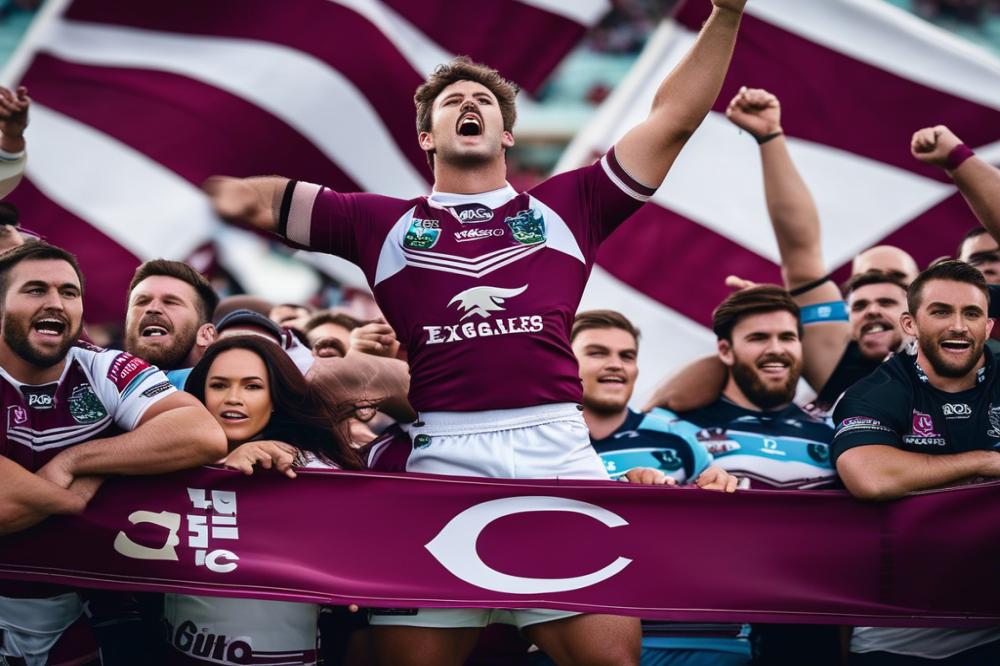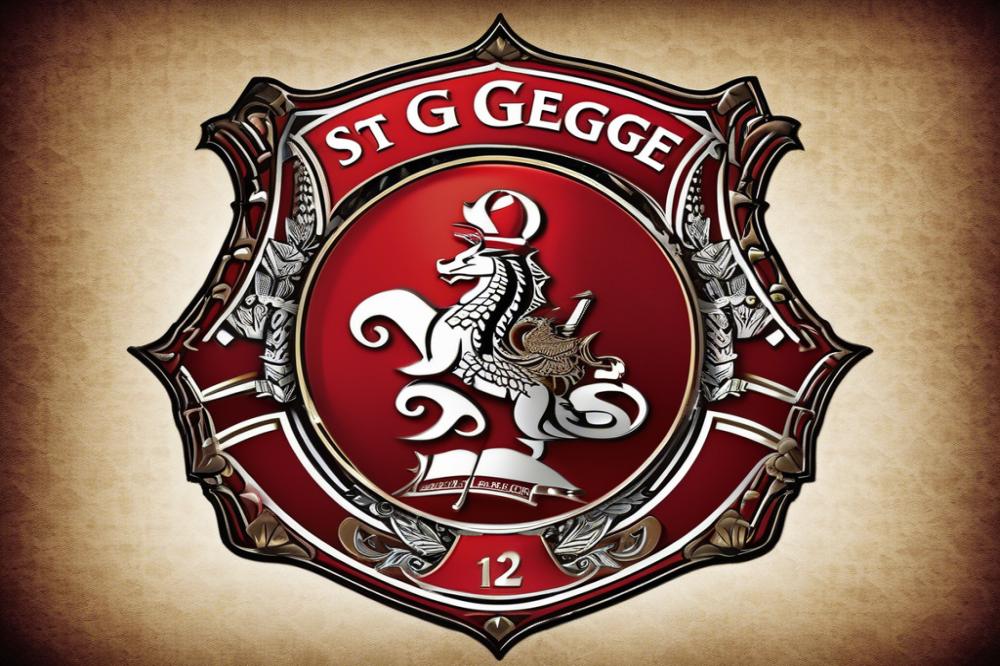Introduction
The Manly Sea Eagles are a staple in NRL history. Known for their fierce competitive nature, the team has attracted both fervent support and notorious disdain. For decades, the perception has been that they are one of the most hated teams in the league. Why do so many NRL fans dislike them? It all boils down to sports rivalry, dominance, and a remarkable ability to stay relevant.
Over the years, the Sea Eagles have built a legacy that cannot be ignored. Located on Sydney’s northern beaches, known officially as Manly Warringah, the club has consistently thrived in a city with numerous other teams. Sydney teams, particularly, have long viewed Manly as rivals. Their success often fuelled resentment. The Sea Eagles’ history includes legendary figures like Bob Fulton and Des Hasler, who both contributed to controversial moments and numerous premiership victories.
This reputation plays a significant role in the dynamic world of rugby league. NRL fans, often no stranger to passionate support, talk about the Manly Sea Eagles with strong feelings. The team’s success often aligned with arrogance in the eyes of their adversaries. Their presence adds intensity to NRL rivalry, making games against them a spectacle. Understanding this animosity means looking at the broader context of the league. While disliked by many, their influence on the game remains undeniable.
Manly Warringah Origins and Success

The Manly Warringah Sea Eagles formed in 1947 on the Northern Beaches of Sydney. From humble beginnings, they swiftly carved their mark in rugby league. They entered the competition brimming with potential, joining a league of seasoned teams. Success came quickly.
Within two decades, this fresh squad clinched their maiden premiership in 1972. Their triumph didn’t stop there. A golden era for the Eagles launched, with more titles in the 1970s. Over time, they built a formidable reputation. In NRL history, such feats are remarkable.
Key figures like Bob Fulton became legends. His influence on the field was unmatched. Under his mentorship, players thrived, securing victories and fostering a winning culture. Des Hasler took the reins in later years, echoing similar success. His tenure brought further accolades, solidifying the team’s dominance.
Controversial moments often characterized their journey. The competitive spirit ignited heated sports rivalry with other Sydney teams. NRL fans passionately debated their tactics and strategies. Critics argue that this fierceness contributed to their success. Yet, it also painted them as an enduring symbol of both admiration and disdain.
Their rise to prominence was a rollercoaster. They gained the ire of many but maintained loyal support. This divisiveness makes their story truly unique in the league. Sea Eagles success crafted an intense narrative in rugby league’s storied past.
Sports Rivalries and Tensions

Exploration of Rivalries with Other Sydney Teams
The Manly Warringah Sea Eagles have carved out a competitive edge in the NRL by sparking fierce rivalries with other Sydney teams. Competition with these teams has a long history in rugby league. Long-standing tensions between Manly and clubs like South Sydney Rabbitohs and Eastern Suburbs have kept fans on edge. Naturally, these rivalries form a backdrop for legendary clashes. Traditional battles like these have helped define NRL history. Of course, meeting on the field didn’t just showcase skill; it fanned the flames of sports rivalry. For Sydney clubs, matches against Manly are more than just games—it’s about pride.
How These Rivalries Intensified Hatred from NRL Fans
Intense rivalries have a way of boiling over, especially with passionate NRL fans. Over the years, altercations between clubs became more than friendly competition. Fans on both sides often found themselves divided, leading to spirited debates and jarring showdowns. Allegiances were tested as controversial moments occurred in key games. Human nature tends to cling to these disputes, heightening animosity. NRL supporters have not forgotten contentious decisions or fiery exchanges between teams.
Notable Matches and Incidents that Fueled Animosity
Certain matches between the Manly Sea Eagles and Sydney teams have become etched in NRL history. One cannot discuss their history without mentioning 1987, when Bob Fulton led them to victory in a grand final standoff against Canberra. Such episodes intensified feelings. During the 2011 grand final win overseen by Des Hasler, tensions peaked once more. These events, soaked in grit, determination, and rivalry, stoked the drama. Crowds roared as decisions on the field tipped scales and set tempers alight. Many remember these moments vividly, for they bear witness to competitive passion.
Controversial Moments

Throughout NRL history, the Manly Sea Eagles have frequently found themselves embroiled in controversy. From administrative blunders to heated on-field incidents, their reputation has been shaped by many contentious episodes. Facing off against Sydney teams, these conflicts have often fueled intense sports rivalry, leading to divisive opinions on the club throughout rugby league communities.
Administrative decisions have sometimes added fuel to the fire. At times, these choices have angered NRL fans, impacting how the league views the club. One key figure in these moments has been Des Hasler. His tenure with Manly Warringah witnessed both remarkable success and tension-filled disputes, displaying how coaching can influence public perception. Similarly, Bob Fulton’s association with the Sea Eagles left a legacy marked by intricate achievements and controversial happenings.
Influential club figures have played a significant role in shaping the narrative. Their actions often created divides, with fans left evaluating contentious decisions. Whether it’s on the field or behind the scenes, these events highlight why the club stirs such strong emotions. The Sea Eagles’ success, despite these turbulent episodes, continues to provoke mixed feelings among supporters and critics alike.
The Sea Eagles’ Continuing Success
The success of the Manly Sea Eagles is a tale well known in rugby league. Consistent wins and remarkable achievements define their legacy. This dominance does not always endear them to others. Many NRL fans view their victories with a mix of admiration and envy. Over the years, their unshakeable spirit led them to numerous finals. This only fuels resentment from rival Sydney teams.
Their reputation is rooted deeply in NRL history. The Sea Eagles success has been a thorn for many competitors. Each championship secured strengthens the bitter sports rivalry. Des Hasler and Bob Fulton are names synonymous with their rise to prominence. They crafted a squad that repeatedly challenged and often triumphed over the best. These victories, however impressive, often come with controversial moments that linger in fan discussions.
The Sea Eagles’ ability to maintain a high level of performance is not ordinary. Other teams watch and wish they had comparable resilience. Yet, such sustained success can alienate fans from rival teams. Watching a familiar opponent on top brings mixed emotions. Celebrations for some mean sorrows for others. This is especially true when the team in question is as formidable as Manly Warringah.
Rugby league is not just about victories. It involves passion, identity, and a sense of belonging. When a team like the Sea Eagles dominates, it disrupts the balance. This dominance contributes to the narrative of them being disliked. Whether it’s their brilliant players or strategic plays, each element feeds a broader narrative. In the end, their achievements make them one of the most talked-about teams in the league. But also, one of the most polarizing.
Final Reflections and Future Outlook
Recap of why the Manly Sea Eagles are seen as one of the most hated teams.
The narrative of the Manly Sea Eagles as a team many love to hate is deeply rooted in their fiercely competitive legacy. Notorious for their on-field ruthlessness and off-field controversies, they have built a reputation that divides fans. Their success has often been accompanied by allegations of arrogance and favoritism, fueling animosity. Many rivalries stem from past matches where intensity and aggression dominated play, shaping perceptions over years.
Reflection on how perception might change in the future.
Yet, perceptions can evolve. Future generations may view the Sea Eagles differently. As players and management change, so can attitudes. Over time, fresh talent and new leadership can soften hardened views. If they embody sportsmanship and community involvement, they might gain respect from those once critical. The potential for transformation exists if they embrace it.
Final thoughts on the legacy and future of the Manly Sea Eagles in the NRL.
The Manly Sea Eagles undeniably hold a significant place in NRL history. Their legacy is both celebrated by supporters and criticized by opponents. Moving forward, they have the opportunity to influence their narrative, knowing the impact of rugby league on countless lives. Despite being labeled as villains, they can craft a future where they are appreciated for more than just victories. Its story isn’t finished yet; with intentional changes, it could intrigue even its harshest critics.



